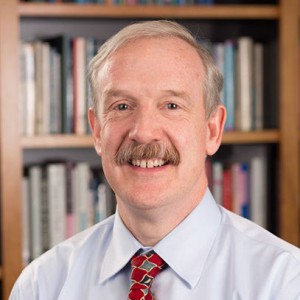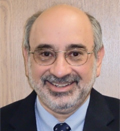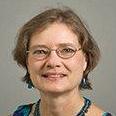Moving from Message to Action: The Role of the Learner in Feedback
This session will review literature regarding the importance of feedback in medical education and the link between feedback-seeking behavior and lifelong learning. The goal of feedback is to actively engage students in a framework for the process of learner reflection on performance. This creates common ground for dialogue regarding performance that facilitates the feedback process and, importantly, when successful results in a change in actions or behaviors by the learner.
Developing Skills at Making Observations
Multiple reports over the last ten years have highlighted the critical importance of direct observation by faculty and other educators in assessment and feedback of medical trainees. Furthermore, competency-based medical education also relies heavily on high quality coaching and feedback. Direct observation is particularly important for the teaching and assessment of clinical skills, communication and interpersonal skills. Despite substantial advances in technology, such as imaging and minimally invasive procedures, clinical and communication skills remain vitally important for effective and high quality healthcare, and faculty must still play a critical role in providing detailed and accurate assessment and feedback to trainees.
This webinar will first provide an overview of theories and recent empiric studies in rater cognition and the implications for direct observation as an assessment method. The webinar will also cover faculty development methods, such as performance dimension training (PDT), frame of reference training (FOR) and behavioral observation training (BOT), that may help faculty to recognize the important characteristics and factors that drive faculty rating performance.
Getting Started as a Medical Teacher of Change
Medical school teaching is a skill that is very often learned on the job. The faculty comprised of researchers and clinicians are expert in many biomedical disciplines, but familiarity with learning theories and pedagogy are usually not included in their knowledge and skill sets. The standards set by accrediting agencies coupled with faculty attrition rates requires efforts to focus on novice educators early in the process.
The session will include a number of topics that can be used to start junior faculty on the correct path to becoming effective medical educators. Each topic will cover resources and tools to make the first teaching encounters positive experiences for the teacher and the learners. Some of the topics to be covered are:
- Identifying a mentor
- Becoming familiar with the goals and objectives of the institution
- Learning about the institutions teaching resources
- Striving to become engaged in the course
- Selecting a pedagogy that fits the learner and you
Graduate Courses on Teaching Skills
Providing the next generation of medical educators with the knowledge, skills and attitudes that characterize successful medical educators requires a purposeful, systematic approach. This webinar will compare two such programs organized as graduate courses. Microbiology 805 at the University of Kansas Medical Center was developed by Michael Parmely in response to requests from graduate students in the PhD program. The course is organized around the principles of student-centered learning and each of the 15 sessions illustrates the prevailing theories and good teaching practices with students doing and reflecting on what they have done. In contrast, the American Physiological Society has developed a course “Becoming and Effective Teacher” as part of its Professional Skills Training program. This course blends an on-line component with a 5 day residential experience that allows the participants to develop skills as and modeling being an effective teacher. This blended approach allows a critical mass of interested students to develop a supportive peer group of committed educators. Incorporating formal educational training into Doctoral graduate programs enhances the skills of our graduates, and increases their competitiveness in the job market.
PRIME Program at Wake Forest
Challenges in medical education are two-fold: 1) schools of medicine are undergoing a trend toward diminishing content in basic sciences, and 2) schools in the allied health professions are attracting a broad range of student backgrounds and professional goals. These challenges are compounded by the emphasis on translational research appropriate for immediate clinical applications or the possibilities of commercialization, in the face of reduction in basic science research support. We have addressed these challenges in our advanced graduate student and postdoctoral training by providing teaching opportunities that require our trainees to direct their content specifically to the professional needs of the allied health care audience, while employing instructional methods that promote active learning and clinical applicability. By this method, we expect to contribute a pool of academic educator-researchers that can fulfil the needs of future biomedical education.
 Dr. Cornell is a professor in the Department of Small Animal Medicine and Surgery at the University of Georgia. Dr. Cornell graduated from Purdue’s School of Veterinary Medicine and after two years in private practice returned to Purdue where she completed an internship, small animal surgery residency and Ph.D. She joined the faculty at the University of Georgia in 1998. Karen is a soft tissue surgeon with a primary interest in teaching methodologies and reconstructive surgery. She is a two-time recipient of the Carl Norden-Pfizer Distinguished Teaching Award and in 2011 she was named a Josiah Meigs Distinguished Teaching Professor, the highest award for teaching at UGA.
Dr. Cornell is a professor in the Department of Small Animal Medicine and Surgery at the University of Georgia. Dr. Cornell graduated from Purdue’s School of Veterinary Medicine and after two years in private practice returned to Purdue where she completed an internship, small animal surgery residency and Ph.D. She joined the faculty at the University of Georgia in 1998. Karen is a soft tissue surgeon with a primary interest in teaching methodologies and reconstructive surgery. She is a two-time recipient of the Carl Norden-Pfizer Distinguished Teaching Award and in 2011 she was named a Josiah Meigs Distinguished Teaching Professor, the highest award for teaching at UGA. Dr. Holmboe, a board certified internist, is Senior Vice President, Milestones Development and Evaluation at the Accreditation Council for Graduate Medical Education (ACGME). From 2009 until January, 2014 he served as the Chief Medical Officer and Senior Vice President of the American Board of Internal Medicine and the ABIM Foundation. He originally joined the ABIM as Vice President for Evaluation Research in 2004. He is also Professor Adjunct of Medicine at Yale University, and Adjunct Professor of Medicine at the Uniformed Services University of the Health Sciences and Fineberg School of Medicine at Northwestern University.
Dr. Holmboe, a board certified internist, is Senior Vice President, Milestones Development and Evaluation at the Accreditation Council for Graduate Medical Education (ACGME). From 2009 until January, 2014 he served as the Chief Medical Officer and Senior Vice President of the American Board of Internal Medicine and the ABIM Foundation. He originally joined the ABIM as Vice President for Evaluation Research in 2004. He is also Professor Adjunct of Medicine at Yale University, and Adjunct Professor of Medicine at the Uniformed Services University of the Health Sciences and Fineberg School of Medicine at Northwestern University. Dr. Richard Feinberg is the Assistant Dean for Basic Science Education and Faculty Development at Rutgers New Jersey Medical School in Newark, New Jersey. Dr. Feinberg provides faculty development through the use of seminars, webinars and workshops. He also works one-on-one with the faculty. He was elected into the Master Educators’ Guild at New Jersey Medical School in 2006 and has received four Golden Apple Awards for his teaching. He has given lectures in cell biology and histology, created podcasts, flipped the classroom, and facilitated small groups in a doctoring course.
Dr. Richard Feinberg is the Assistant Dean for Basic Science Education and Faculty Development at Rutgers New Jersey Medical School in Newark, New Jersey. Dr. Feinberg provides faculty development through the use of seminars, webinars and workshops. He also works one-on-one with the faculty. He was elected into the Master Educators’ Guild at New Jersey Medical School in 2006 and has received four Golden Apple Awards for his teaching. He has given lectures in cell biology and histology, created podcasts, flipped the classroom, and facilitated small groups in a doctoring course. Michael J. Parmely, PhD, Chair, Department of Microbiology, Molecular Genetics and Immunology, University of Kansas Medical Center. 913-588-7053
Michael J. Parmely, PhD, Chair, Department of Microbiology, Molecular Genetics and Immunology, University of Kansas Medical Center. 913-588-7053  Robert G. Carroll earned his Ph.D. in Physiology at the University of Medicine and Dentistry of New Jersey-Newark in 1981, and following a 3 year post-doc at University of Mississippi Medical Center in Jackson, he moved to East Carolina University in 1984 as an Assistant Professor of Physiology. He is currently Professor of Physiology at the Brody School of Medicine at East Carolina University, and currently serves as the Interim Associate Dean for Medical Education.
Robert G. Carroll earned his Ph.D. in Physiology at the University of Medicine and Dentistry of New Jersey-Newark in 1981, and following a 3 year post-doc at University of Mississippi Medical Center in Jackson, he moved to East Carolina University in 1984 as an Assistant Professor of Physiology. He is currently Professor of Physiology at the Brody School of Medicine at East Carolina University, and currently serves as the Interim Associate Dean for Medical Education. Allyn C. Howlett received her BS in biochemistry from the Pennsylvania State University and Ph.D. in Pharmacology and Toxicology from Rutgers University. She did her postdoctoral work at the University of Virginia, and took her first academic appointment at Saint Louis University in the department of Pharmacological and Physiological Science. Dr. Howlett was the Director of the NIDA-sponsored Neuroscience of Drug Abuse Research Program at the Julius L. Chambers Biomedical-Biotechnology Research Institute at North Carolina Central University of the University of North Carolina system. She is currently a professor of Physiology and Pharmacology and the Director of the Integrative Physiology and Pharmacology Ph.D. training program at Wake Forest School of Medicine. Dr. Howlett has trained numerous post-doctoral, pre-doctoral, M.S., summer program or medical students, and MARC U*STAR and MBRS-RISE undergraduate research programs. Dr. Howlett contributes lectures to medical, health professional and graduate courses, and is course director for two of these. Dr. Howlett is an Adjunct Professor in the department of Physical Therapy at Winston-Salem State Univ. (WSSU), where she oversees the team-taught courses in Applied Physiology and in Pharmacology in the doctoral in Physical Therapy program. Dr. Howlett developed a WFU Graduate School professional development course for advanced graduate students and post-doctoral trainees to gain a mentored experience in college level teaching at participating neighboring academic institutions. Through the NIGMS Institutional Research and Academic Career Development Award (IRACDA) K12 program, Dr. Howlett and the WFU Graduate School are partnering with Life Sciences and Physical Therapy departments at WSSU to provide career development for highly-motivated post-doctoral scholars whose career goals are to become academic researcher-teachers in the health professions.
Allyn C. Howlett received her BS in biochemistry from the Pennsylvania State University and Ph.D. in Pharmacology and Toxicology from Rutgers University. She did her postdoctoral work at the University of Virginia, and took her first academic appointment at Saint Louis University in the department of Pharmacological and Physiological Science. Dr. Howlett was the Director of the NIDA-sponsored Neuroscience of Drug Abuse Research Program at the Julius L. Chambers Biomedical-Biotechnology Research Institute at North Carolina Central University of the University of North Carolina system. She is currently a professor of Physiology and Pharmacology and the Director of the Integrative Physiology and Pharmacology Ph.D. training program at Wake Forest School of Medicine. Dr. Howlett has trained numerous post-doctoral, pre-doctoral, M.S., summer program or medical students, and MARC U*STAR and MBRS-RISE undergraduate research programs. Dr. Howlett contributes lectures to medical, health professional and graduate courses, and is course director for two of these. Dr. Howlett is an Adjunct Professor in the department of Physical Therapy at Winston-Salem State Univ. (WSSU), where she oversees the team-taught courses in Applied Physiology and in Pharmacology in the doctoral in Physical Therapy program. Dr. Howlett developed a WFU Graduate School professional development course for advanced graduate students and post-doctoral trainees to gain a mentored experience in college level teaching at participating neighboring academic institutions. Through the NIGMS Institutional Research and Academic Career Development Award (IRACDA) K12 program, Dr. Howlett and the WFU Graduate School are partnering with Life Sciences and Physical Therapy departments at WSSU to provide career development for highly-motivated post-doctoral scholars whose career goals are to become academic researcher-teachers in the health professions.